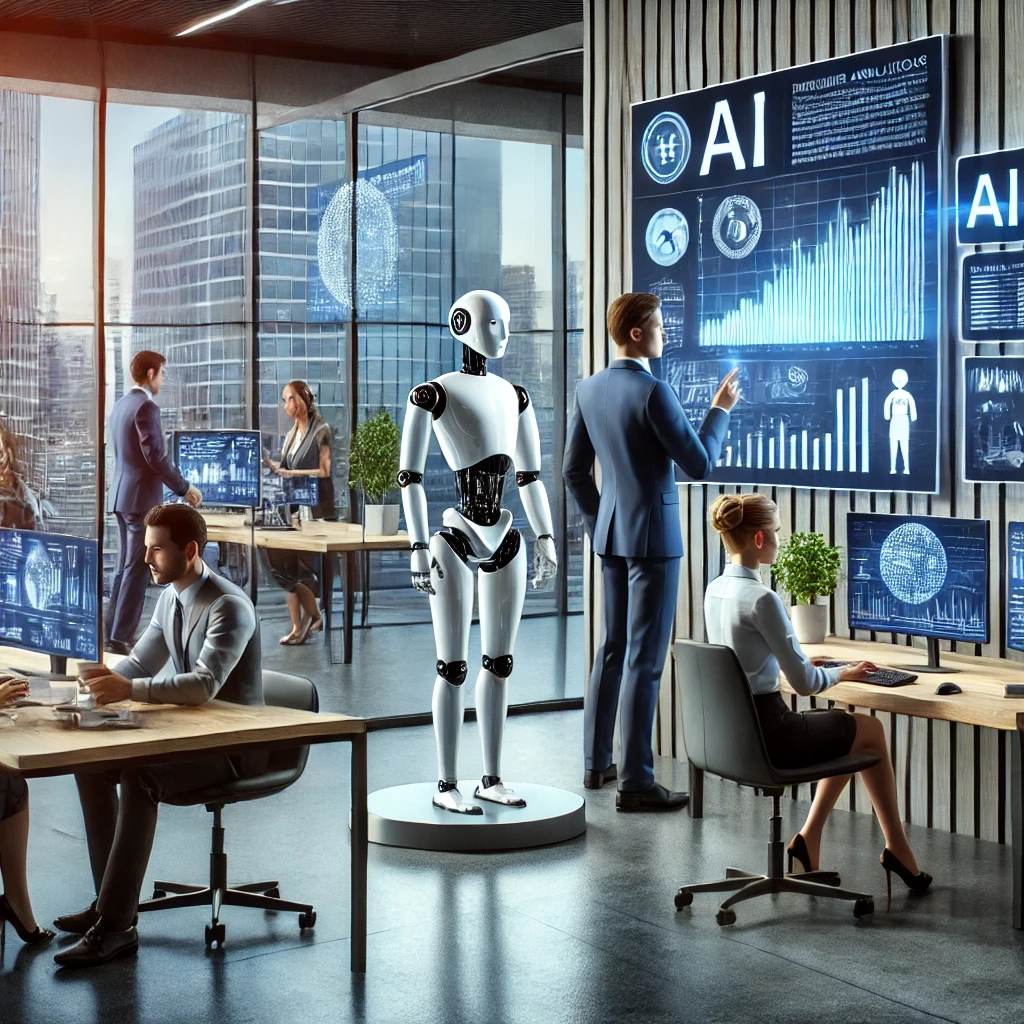The Impact of Artificial Intelligence on Business
How is artificial intelligence changing the business world?
Introduction
Artificial IntelligenceAIis no longer a futuristic technology; it has become an integral part of everyday life and the business world, with companies of all sizes leveraging AI's remarkable capabilities to optimize processes, boost productivity, and enhance customer experience.
This article explores the wide-ranging impacts of AI on businesses and the transformations it has brought to this domain.
The Impact of Artificial Intelligence on Business
The impact of artificial intelligence on process optimization
One of the most significant advantages of artificial intelligence is its ability to optimize business processes. Many companies use machine learning algorithms and big data processing to analyze market patterns, forecast demand, and optimize their supply chains. These technologies have led to cost reduction, increased efficiency, and faster operations.
For example, logistics companies use artificial intelligence to optimize delivery routes; advanced algorithms can analyze traffic data, weather conditions, and fuel consumption to suggest the best routes. This leads to reduced transportation costs and increased service speed.
The role of artificial intelligence in improving customer experience
In today's competitive world, customer experience is considered one of the key factors for business success, and artificial intelligence plays a crucial role in enhancing this experience, with smart chatbots and AI-powered support systems enabling fast and accurate responses to customers.
Moreover, recommender systems used on platforms like Amazon and Netflix can suggest products and content tailored to users’ preferences based on their behavior, increasing user engagement and improving conversion rates in online businesses.
Transformation in recruitment and human resource management
Artificial intelligence has had a significant impact on the human resources sector as well; many companies use AI-powered software to review resumes, conduct initial interviews, and predict employee success in various job positions. These tools help reduce recruitment time and costs and enable more precise and optimized workforce selection.
Additionally, artificial intelligence is also used in employee performance evaluation and providing personalized feedback. For example, companies can use data analysis to identify employees' strengths and weaknesses and offer appropriate training programs to them.
The impact of Artificial Intelligence on Cybersecurity
Cybersecurity is another area that has been significantly impacted by Artificial Intelligence; with the rise of cyberattacks, organizations need more advanced solutions to identify and counter threats. AI algorithms can detect suspicious patterns and implement preventive measures against cyberattacks.
Additionally, AI-based systems can automatically analyze security threats and provide countermeasures without the need for human intervention.
These technologies enhance data security and reduce the risks associated with cyberattacks.
The Impact of Artificial Intelligence on Business
Challenges and Limitations of Artificial Intelligence in Business
Despite all the benefits of artificial intelligence, this technology also comes with challenges. One of the main concerns is privacy and data security. Many users are worried about how their personal information is processed and used by AI systems.
In addition, excessive reliance on artificial intelligence may lead to a reduction in creativity and human decision-making in the workplace. Businesses must use AI in a balanced way to still leverage human analytical and decision-making power.
The Impact of Artificial Intelligence on Business
Conclusion
Artificial intelligence is significantly transforming the business world and providing numerous opportunities for optimizing processes, enhancing customer experience, managing human resources, and improving cybersecurity.
However, businesses must also pay attention to the challenges associated with this technology and use it as a tool to enhance efficiency and productivity; the future of business is undoubtedly intertwined with artificial intelligence, and organizations that can leverage this technology effectively will have a significant competitive advantage.
The Impact of Artificial Intelligence on Business


